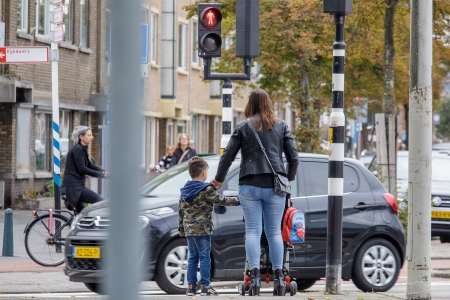Education programmes in which young people have encounters with people who have been involved in a road crash may result in small positive effects on attitudes and knowledge, which, however, do not always take root.
In the Netherlands, the organisation Traffic Informers (www.trafficinformers.nl) brings together road casualties suffering from permanent brain injury and secondary school pupils. In class, road casualties first talk about their lives before the crash, and next about the crash and how it changed their lives. An evaluation study in 2006/2007 [36] showed that four weeks after the talk, these encounters had a positive effect on pupils’ attitudes about road safety and on estimating the risk of being involved in a crash themselves. In contrast, some participants were more positive about traffic offences after the lesson. Thus, both positive and negative effects were found in this study, but both effects were very small.
More recently, similar initiatives to have young people meet road casualties have been evaluated in Belgium [37], Denmark [38] and Germany [39]. They generally found no or only small positive effects on attitudes, knowledge or self-reported behaviour. In the Belgian study, an effect was still found after two months; in the German study, the effects had disappeared after five months.
